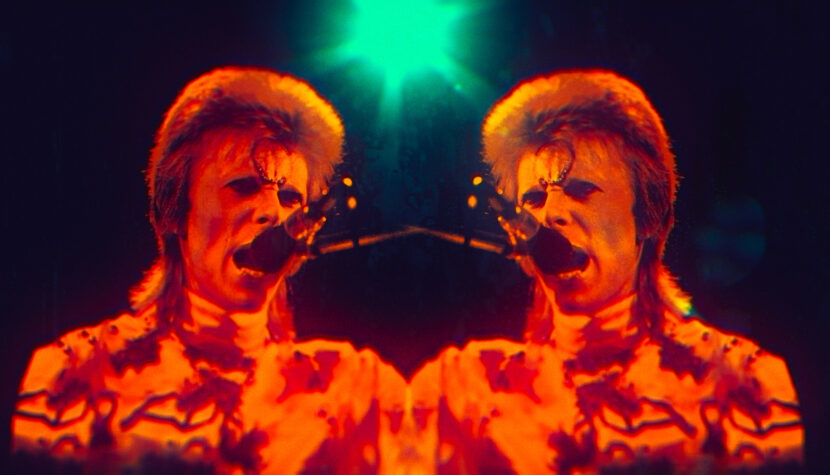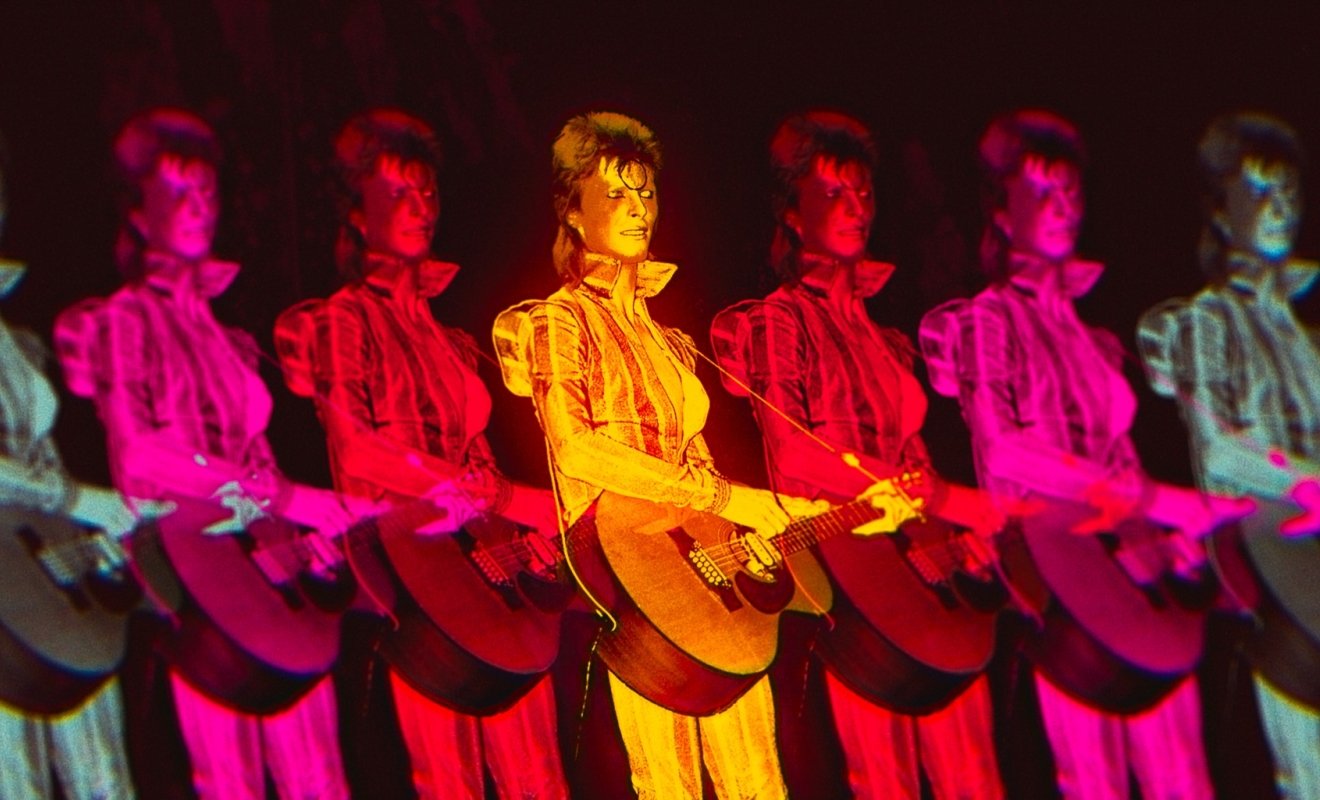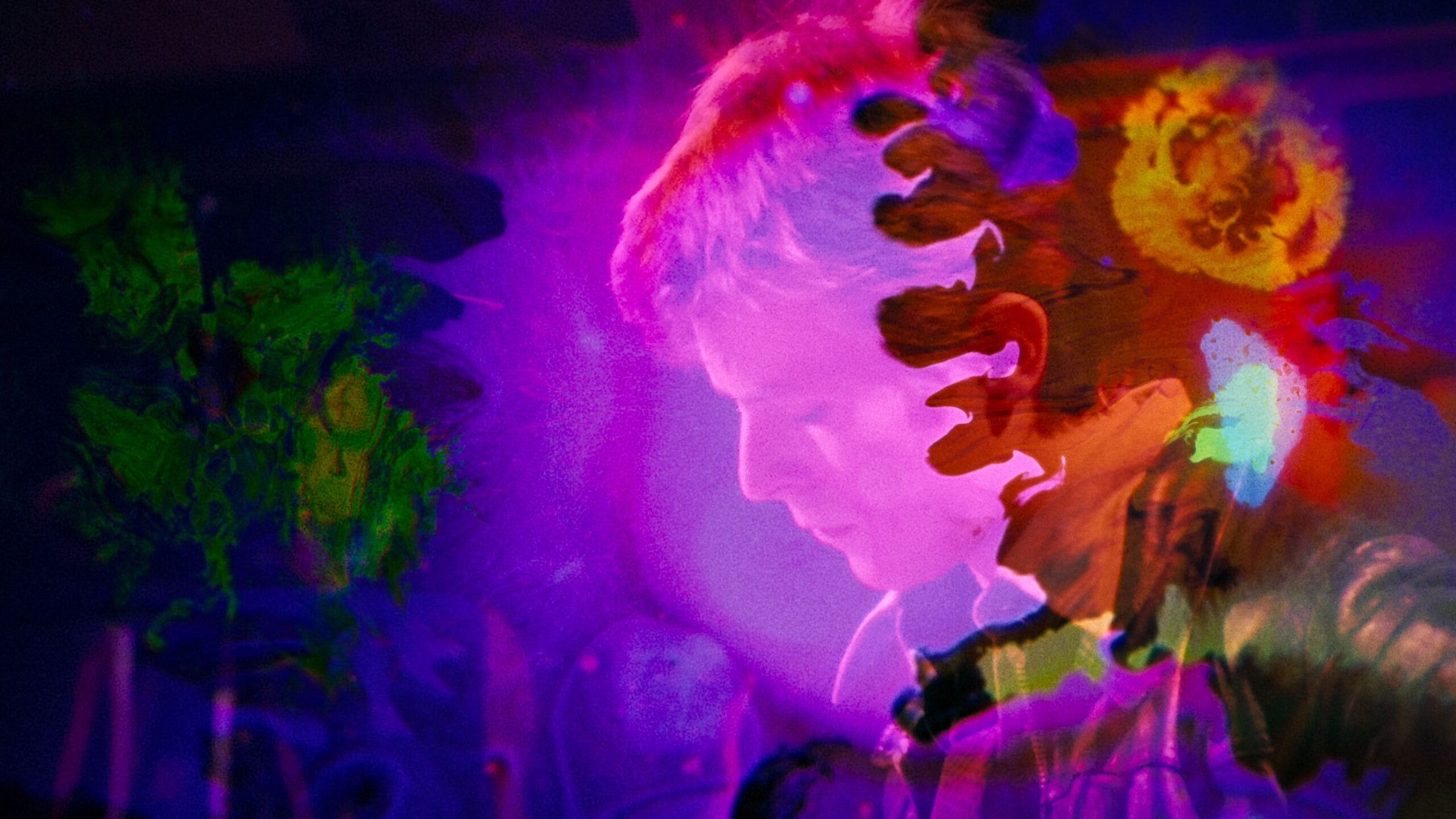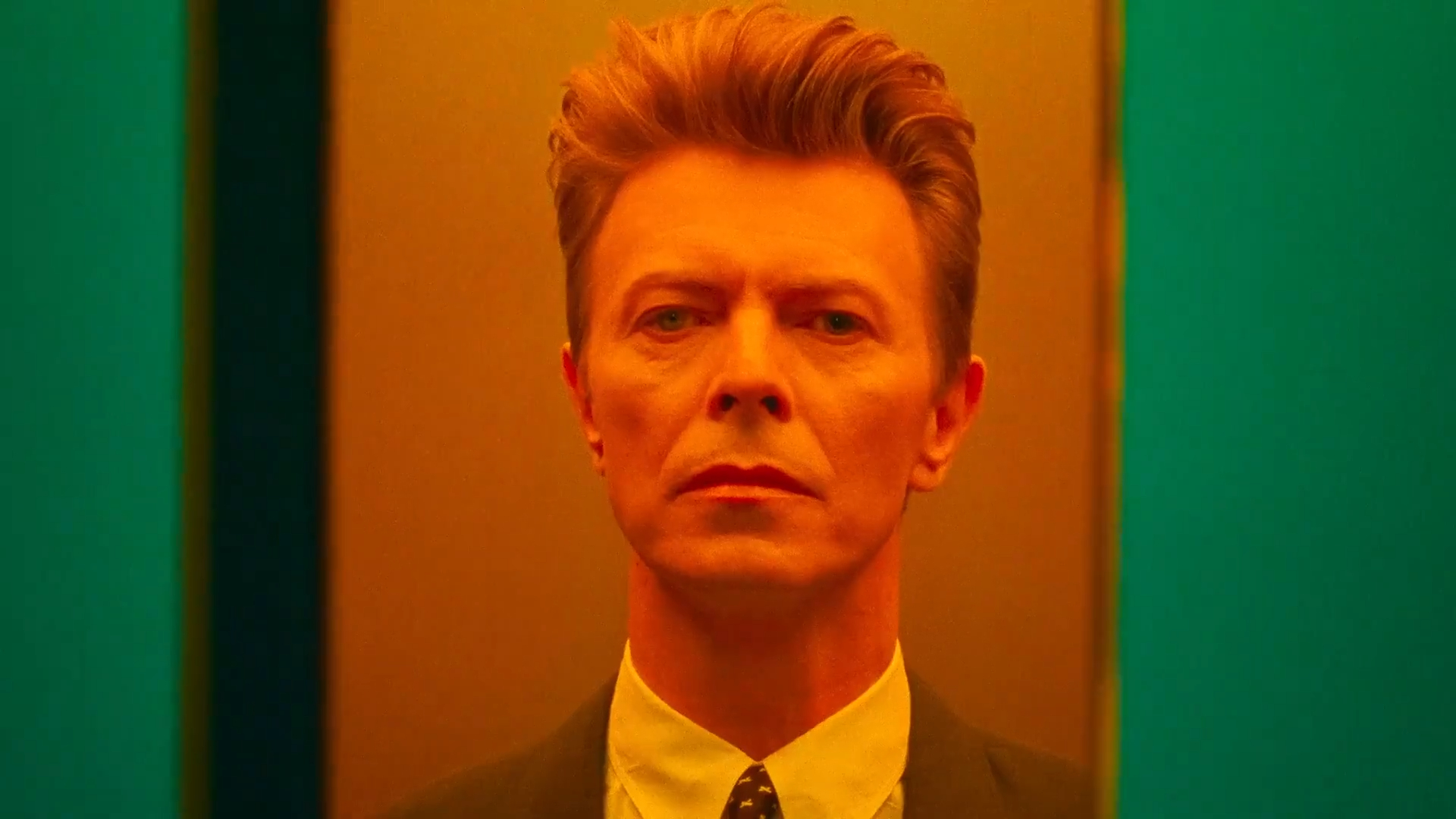MOONAGE DAYDREAM. David Bowie lives

It can be said without exaggeration that David Bowie was one of the biggest pop culture stars of the 20th century and arguably one of the most influential figures in world music. The Englishman’s prominence in the pantheon of stage stars is determined not only by his still-remembered and eagerly listened-to hits, but perhaps most of all by his stage image – Bowie treated himself as a performer, on par with writing music, focusing on creating his artistic image, making him recognizable even among people who are unfamiliar with his output as a singer. Even if you are not familiar with any of Bowie’s songs, you are likely to associate at least one of his creations. It is this aspect of David Bowie’s legacy that Brett Morgen explores in his latest documentary on the musician, who died in 2016, Moonage Daydream.
Bowie and his personae

Fans will easily recognize the title of the film – it is the title of a song from the iconic album The Rise and Fall of Ziggy Stardust and the Spiders From Mars, released in 1972. In the lyrics of the third track from the album, Bowie introduces his titular alter ego – an androgynous rock star who came to Earth from outer space. It is no coincidence that this very song gave the title to Morgen’s documentary. The filmmaker is not so much interested in the detailed biography of the musician himself, born David Robert Jones, as in the life of his artistic persona. In this context, Ziggy Stardust plays a somewhat central role – the album itself deals with an extraordinary personality losing himself in the course of a dizzying stage career, and it was also the first moment when Bowie – at the dawn of the 1970s already a major star – openly embodied the stage persona he had created, thus cementing the foundation of his career as a cultural icon. Following in the footsteps of the constant creation and reinvention of self that marked the trajectory of Bowie’s career, Morgen thus takes viewers on a journey through the eponymous daydream of the musician’s eclectic career, full of twists and turns.
Biographical collage
In this story you won’t find the typical elements of a biography – childhood memories, stories from relatives and friends about meeting the story’s protagonist, analyses of character and behavior made from a temporal distance. Brett Morgen, who is credited with editing the materials obtained for the production of Cobain: Montage of Heck, constructs the film narrative exclusively from archival fragments about Bowie – music videos, concert footage, talk-shows and TV interviews, radio broadcasts, excerpts from feature films starring him, TV reports. In such a convention, we learn almost nothing about Bowie’s private life – we get only fragments, which we can then fit into the puzzle at will. The director follows the theme, and omits elements that are unimportant to him along the way. Rejecting the classic frame of biographical narrative, Morgen allows the protagonist himself to speak for himself in a sense, including through song lyrics.

In this way, Morgen manages to avoid the pitfalls and shoals into which most music documentaries fall, which always bend the biography of artists, make annoying cuts or omissions, and often also fall into the banality of divining about other people’s lives. This is not the case in Moonage Daydream – the relation to the chronology of the career is so loose that, by definition, it is about selected meaningful fragments, not an exact reconstruction; the statements made on the screen are fundamentally of the nature of divagation limited by the perspective and moment of delivery, and the burden of literalness is taken off the whole by the specific dialogue in which Morgen sets the facts of Bowie’s career and his often very allegorical lyrics. In doing so, the filmmaker chooses those songs that are genuinely useful to him, without making the film a greatest hits compilation – some of which he skips, instead bringing out less obvious stuff or versions from Bowie’s catalog. The result is a very interesting journey through the world of a thousand and one faces of celebrity, in which we can reflect on its essence – the relationship between creator and creation, as well as the social significance of the person David Bowie has become.
Personification of pop culture
With the constant sound of Bowie’s music, Moonage Daydream manages to capture perhaps the most important element of the artist’s oeuvre – his inextricable coupling with the spirit of the times. Through Bowie’s career, we can also trace the trajectory of pop culture. We see the explosion of fame of an extreme individuality eschewing social conventions in the counter-cultural rebellion-saturated 1970s and the disillusionment-laden retreat from the glamour of the stage at the end of the decade, commercialization and submission to the rules of the market in the 1980s and a kind of eclectic balance in the last decade of the 20th century and the beginning of the 21st. In Morgen’s case, Bowie becomes the epitome of pop culture, and his transformation parallels the broader transformation of the cultural industry. Of course, the documentary filmmaker doesn’t invent this thought, but he makes excessively good use of it, striking a healthy balance between telling the story of an individual and discreetly portraying the context in which he came to be.

Moonage Daydream is, naturally, a must-see item for anyone who is somehow familiar with David Bowie’s music. But not only – it is a largely universal and brilliantly done on the level of cinematic collage story about a one-of-a-kind star. You don’t need to study Wikipedia before the screening, nor do you need to take keen notes while watching to learn all you can about the character. Moonage Daydream is a film in which, with the knowledge that only part of the truth about a person can be told and only a mere memory about him can be extracted, the filmmaker invites us to meet the artist and his art, in this case being both music and a performance project of himself. In the course of this meeting, one can see that more than six years after Bowie’s death, his artistic soul is still as alive as ever.

